A staggering 50 million people suffer from dementia worldwide, and there are almost 10 million new cases per year.
Alzheimer’s disease is the most common type of dementia, contributing to 60–70% of cases. The disease currently has no cure and although a lot is known about dementia and Alzheimer’s, current treatments still have a lot of room for improvement.
CBD is a promising new treatment for dementia and Alzheimer’s. Studies are appearing that may prove its benefits for people with neurodegenerative disorders.
How does it work, what are the benefits, and what’s the best CBD for the condition?
Best 3 CBD Oil Brands for Dementia:
- Royal CBD — Best CBD Overall
- Gold Bee CBD — Best Full-Spectrum CBD
- Hemp Bombs CBD — Best Isolate CBD
1. Royal CBD
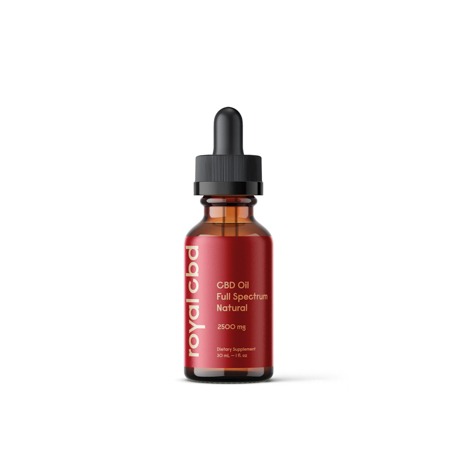 Royal CBD is a premium CBD brand that produces high-quality oil, edibles, and topicals.
Royal CBD is a premium CBD brand that produces high-quality oil, edibles, and topicals.
Their CBD is extracted from certified organic hemp using a CO2 extraction technique. CBD products are available in isolate, broad-spectrum, and full-spectrum.
We favor their full-spectrum CBD oil for dementia patients. There are four potency options available (250 mg, 500 mg, 1000 mg, and 2500 mg), with each providing the full entourage effect due to a high terpene and cannabinoid content.
Key Points:
- Up to 83 mg of CBD per mL
- Wide range of products available
- Multiple potencies available (250 mg, 500 mg, 1000 mg, and 2500 mg)
- 5-star customer service
- Full-spectrum, broad-spectrum, and isolate available
- Uses certified organic hemp
- Third-party lab tested
2. Gold Bee CBD
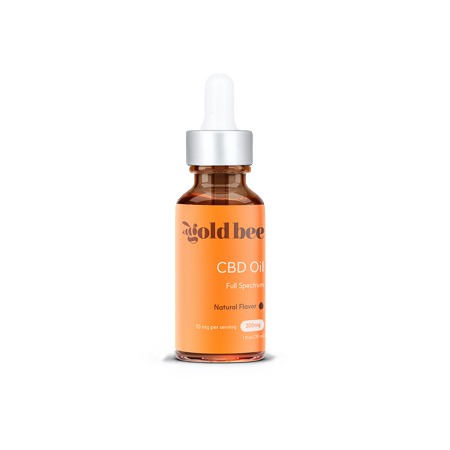 Gold Bee CBD is a small company that focuses on quality over quantity.
Gold Bee CBD is a small company that focuses on quality over quantity.
Their product range is limited but their CBD is some of the best on the market. They offer CBD oil, gummies, capsules, and honey sticks in full- and broad-spectrum variations.
A slow-diffusion extraction technique is used to extract CBD from organic hemp. This technique produces a final product that has a rich cannabinoid profile.
We recommend Gold Bee CBD’s full-spectrum CBD oil and high-potency full-spectrum soft gel capsules for dementia and Alzheimer’s.
Key Points:
- High-potency products
- Full- and broad-spectrum available
- 100% vegan (except their honey sticks)
- Uses certified organic hemp
- Slow-diffusion extraction process
- Rich cannabinoid profiles — independent lab tested
3. Hemp Bombs CBD
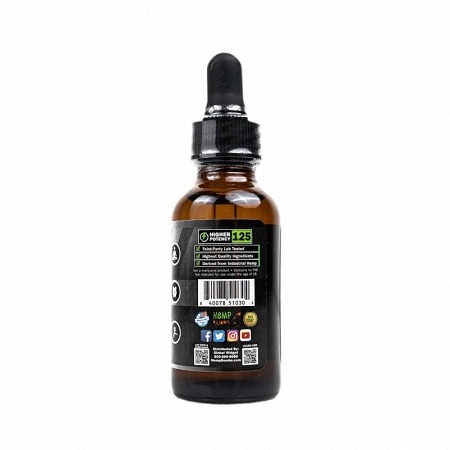 Hemp Bombs CBD focuses on producing high-quality CBD isolates at an affordable price.
Hemp Bombs CBD focuses on producing high-quality CBD isolates at an affordable price.
They have an extensive product range with multiple potencies available. However, they don’t offer any full- or broad-spectrum products.
Hemp Bombs CBD extracts their CBD from organic US-grown hemp. Independent lab reports are easily accessible with a full page on their website dedicated to them. You’ll find reports for all of their products.
You can see everything from CBD levels to chemical residuals in these reports.
Hemp Bombs CBD is the best isolate CBD for dementia. Their high-potency oils and gummies are excellent if you react poorly to certain cannabinoids or terpenes present in full- and broad-spectrum oils.
Key Points:
- Excellent value for money
- High-quality CBD isolate
- Uses US-grown organic hemp
- Extensive product range
- Multiple potencies available
What are Dementia and Alzheimer’s?
Dementia
Dementia is a condition that affects the function of the brain. It’s commonly characterized by the deterioration of two specific functions — memory loss and impairment of judgment.
Dementia’s ability to impair these simple brain functions can severely affect day-to-day life and reduce the patient’s quality of living.
Dementia is associated with old age and is more commonly seen in people over the age of 65. However, it’s not a part of normal aging.
There are many different causes for dementia and several different types. Progressive dementia is incurable. However, some types can be treated and symptoms improved to increase the patient’s quality of life.
Alzheimer’s Disease
There are many types of dementia but the most common is Alzheimer’s disease.
Alzheimer’s is a progressive brain disorder that is irreversible and has no cure.
The disease was discovered by Alois Alzheimer, who in 1906 noticed changes in the brain tissue of one of his patients who died from (at the time) an unknown mental condition. The patient’s symptoms included memory loss, language issues, and irregular behavior.
Upon autopsy, Dr. Alzheimer’s found abnormal clumps on the brain (now known as amyloid plaques) and tangled fibers (called neurofibrillary tangles).
These abnormal changes interfere with simple brain functions in the hippocampus (the part of the brain that’s in charge of memory).
CBD Oil for Dementia and Alzheimer’s Benefits
 CBD oil may provide many benefits for dementia and Alzheimer’s disease.
CBD oil may provide many benefits for dementia and Alzheimer’s disease.
It should be noted that the best cure is prevention when it comes to dementia. CBD should be used as early as possible in the onset of dementia and Alzheimer’s.
Of course, it’s difficult to predict dementia and most of us are looking for a way to increase the quality of life for people already suffering from some form of the condition.
In this case, it’s important to know that a long-term approach is needed to notice the full benefits of CBD for dementia and Alzheimer’s disease.
The best results occur when CBD is used for several months.
Noticeable results may not be seen for many weeks or months after the first dose of CBD is administered. It’s essential to stick to the treatment for at least three months before disregarding the cannabinoid.
So, how can CBD help with Dementia and Alzheimer’s?
1. CBD May Increase Blood Flow to the Brain
Several studies suggest that CBD has an effect on cerebral blood flow [1].
Decreased blood flow is directly linked to dementia. As we age, the efficiency of our blood vessels decreases. When blood flow in the hippocampus decreases it can negatively impact cognitive function — altering thought processing, memory, and decision making.
CBD increases blood flow in the hippocampus, suggesting it may help prevent the onset of dementia and improve brain function.
2. CBD May Protect the Brain from Damage
Amyloid-beta is a protein that’s a main component of the amyloid plaque that is found in people with Alzheimer’s disease.
The damaging effects of amyloid-beta directly impact several brain functions. These impacted brain functions produce the associated symptoms of Alzheimer’s disease.
One study suggests that cells treated with CBD were able to resist the effects of amyloid-beta [2]. This is a key factor in preventing the further decline of cognitive brain function in dementia and Alzheimer’s patients.
Reducing the buildup of amyloid plaque using CBD may help improve the brain function of dementia patients, prevent further cell damage from occurring, and slow down the onset of dementia.
3. CBD Helps to Reduce Oxidative Damage
 CBD has antioxidant properties.
CBD has antioxidant properties.
Antioxidants help defend your body against free radicals.
Free radicals are harmful molecules that cause damage to cells all over the body, including those in the brain.
There are a number of ways free radicals can enter the body:
- Smoking
- Alcohol consumption
- Processed foods & drinks
- Non-organic produce
- Exposure to heavy metals & other pollutants
Free radicals are directly linked to several illnesses and diseases including dementia and Alzheimer’s.
A life of tobacco, alcohol and excessive junk food consumption can cause a buildup of free radicals in the body. When levels become too high, they cause oxidative stress, eventually leading to cell damage.
Oxidative damage due to free radicals has been found in the brains of dementia patients [3].
Studies suggest that CBD and other cannabinoids have antioxidative properties and can help defend your body from free radicals [4].
4. CBD May Help Dementia Patients With Sleep
CBD may help dementia patients with sleep. Although this benefit won’t directly help reduce the onset of dementia and Alzheimer’s, it’ll help greatly improve the quality of life in people suffering from the disease.
Sleep disturbance affects 25% of people with mild dementia and up to 50% of people with severe dementia. As dementia worsens, sleep disturbance tends to follow suit.
Dementia and Alzheimer’s patients that are experiencing insomnia may become more irritable and unhappy during the day. Anxiety levels can also increase with a lack of sleep, further elevating the symptoms of the condition.
As some studies suggest, CBD may help anxiety [5]. This can help improve a dementia sufferer’s quality of life and may help alleviate symptoms that come as a result of dementia-inflicted insomnia.
How Does CBD Oil Affect Memory?
Cannabis has a bad reputation when it comes to memory recollection. Ask most people what the effect of cannabis is on memory and they’ll probably tell you it makes you forgetful. This is true to some extent.
When cannabis with high levels of Delta-9 THC is consumed, it’s intoxicating (it’ll get you high). During intoxication, it’s common to become forgetful and suffer from short-term memory loss. However, this is due to impairment from the THC and isn’t a long-term effect.
When the THC is taken out of the equation or reduced to non-intoxicating levels, this effect is removed. In fact, CBD and other cannabinoids in the hemp plant may have a positive effect on memory [6].
CBD has the ability to reduce cognitive decline while improving memory function. Studies suggest that CBD and other cannabinoids have neuroprotective properties that can improve memory in Alzheimer’s patients [7].
Where Can you Buy CBD Oil for Dementia?
CBD oil is widely available and can be purchased in a variety of ways. You’ll find CBD oil and other CBD products available at dispensaries, health stores, and some supermarkets.
However, the best place to purchase CBD oil for dementia is on the internet.
It’s much easier to find the product you need in your desired potency on the internet. It’s easier to look at lab reports, detailed descriptions, and you’re guaranteed to get exactly what you came for by going directly to the manufacturer’s online store.
It’s also usually cheaper shopping online. Depending on the company you buy from, you’ll benefit from monthly subscriptions, member discounts, special offers, and seasonal discounts.
What’s the Best Way to Take CBD for Dementia?
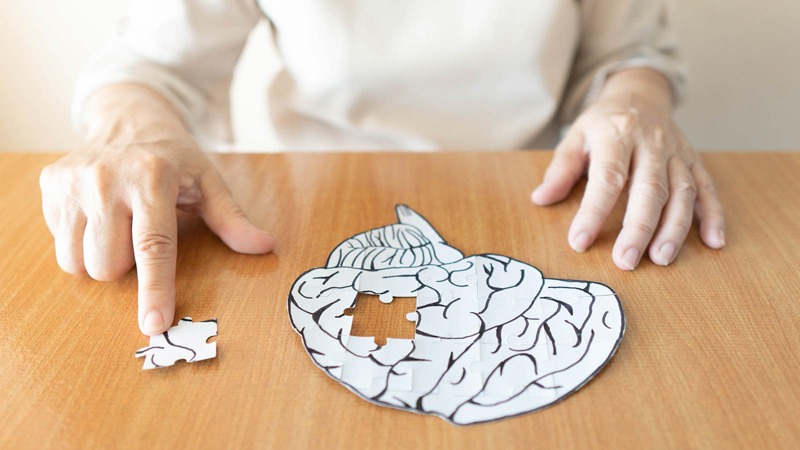 CBD’s antioxidative properties alongside its ability to improve blood flow to the brain and the potential to reduce amyloid plaque make it a promising treatment for dementia.
CBD’s antioxidative properties alongside its ability to improve blood flow to the brain and the potential to reduce amyloid plaque make it a promising treatment for dementia.
So, what’s the best way to use CBD for Dementia and Alzheimer’s?
It’s important to consider the type of CBD and method of consumption before choosing the best CBD product for a dementia patient. You should also note that the positive effects of CBD on dementia may only start to appear after several weeks and, in some cases, several months.
With this in mind, it’s important to implement a daily CBD routine. If the cannabinoid is taken daily for many weeks, the patient should start to see some positive effects.
1. CBD Isolate, Full-Spectrum, or Broad-Spectrum?
If you’ve never used CBD before, you may be wondering what the terms isolate, broad-, and full-spectrum mean. They each have their pros and cons but some stand out more than others when treating dementia.
CBD Isolate
CBD isolate contains the cannabinoid cannabidiol (CBD) and no other cannabinoids or terpenes.
CBD isolate is a pure extract that is perfect if you want to avoid THC or any other cannabinoids naturally present in other hemp extracts. However, you don’t receive the entourage effect as you would from full-spectrum CBD.
It’s believed that CBD is far more effective when combined with the other compounds present in the cannabis plant (the entourage effect) [8]. With this in mind, full- and broad-spectrum CBD may be better for the treatment of dementia.
If other cannabinoids present in full- and broad-spectrum extracts don’t react well with you, CBD isolates are a fantastic option.
Broad-Spectrum
Broad-spectrum CBD products contain CBD and all the other cannabinoids and terpenes present in the hemp plant excluding THC.
Broad-spectrum CBD has a similar cannabinoid profile to full-spectrum CBD without any trace amounts of the psychoactive compound THC. This makes it perfect for people that react badly to THC but want to benefit from the other cannabinoids present in hemp.
Because an almost full cannabinoid profile is present in broad-spectrum CBD products, it poses far more promising health benefits to dementia patients thanks to the entourage effect.
Full-Spectrum
Full-spectrum CBD contains all of the naturally occurring cannabinoids and terpenes found in the hemp plant including THC at percentages lower than 0.3%.
This type of CBD is the most valuable medically because it contains a full cannabinoid profile, so the full entourage effect is received.
This makes it the best type of CBD for dementia patients as long as they don’t react badly to any other cannabinoids present in the extract, which is unlikely.
It’s also good to note that although full-spectrum CBD does contain the psychoactive cannabinoid THC, it doesn’t impair the user. At levels below 0.3%, there’s far too little THC to get you “high”.
2. Different CBD Products for Dementia
 CBD Oil
CBD Oil
CBD oil is the most commonly used form of CBD for dementia. It can be administered under the tongue using a dropper or added to food and drinks as a supplement.
CBD oil is highly bioavailable and it gives you full control and flexibility in terms of dosage. Multiple potencies are available and increasing or decreasing your dose is as easy as administering more or fewer drops.
CBD Edibles
CBD edibles are available in many forms. Gummies are the most common, but honey sticks, lollipops, and hard candies are also available.
Edibles are great if you’re looking for an easy way to consume CBD without the taste of raw oil. They provide an accurate way to take CBD, with each edible containing an exact dose.
Multiple potencies are available and edibles can be found in isolate, full-, and broad-spectrum variants.
CBD Capsules
CBD capsules are another way to consume CBD in an accurate and tasteless way.
Taking a CBD softgel or dry capsule is as easy as consuming any other medication or supplement. They can be included with other daily dementia medications as part of a routine.
Capsules can be found in multiple potencies in either isolate, full-, or broad-spectrum.
CBD Vaporizers
CBD vaporizers use a CBD-infused vape liquid that is heated up and inhaled as vapor. This form of CBD is the most bioavailable as it’s absorbed directly into the body via the lung tissue.
Vaping CBD produces noticeable effects quickly after consumption. However, if a dementia patient also suffers from respiratory issues it may not be the best option.
Although there’s little known about the effects on the respiratory system when CBD is inhaled, it has the potential to trigger conditions such as asthma.
CBD for Dementia: How to Use it Safely
Safety should be a top priority when using any medication to treat dementia.
There are not many risks and side effects of using CBD however there are a few things you should do before using it for dementia and Alzheimer’s disease.
Consult a Doctor Before Using CBD for Dementia
First and foremost, consult a doctor before using CBD for dementia. Certain cannabinoids may react with other medications, either making them lose effectiveness or posing a health risk when used alongside them.
Speaking with a medical professional will ensure that CBD is safe to use as part of dementia treatment.
Start With a Small Dose of CBD
As mentioned earlier, when using CBD for the first time it’s important to start with a small dose to see how the body reacts. Always increase doses in small increments and keep a close eye on how the body reacts to the product.
Some people react better to full- and broad-spectrum CBD and others react better to pure CBD (isolates).
Check Independent Lab Reports
Always check independent lab reports and purchase CBD from a reputable company. Checking lab reports ensures there are no harmful residues in the extract. Purchasing from a reputable company ensures you’re getting the highest quality product.
Take a Multifaceted Approach
Don’t expect to replace other medications entirely with CBD. Using it alongside other treatments is the best way to combat dementia. If any symptoms appear to be worsening, stop using the product and consult your doctor.
Is CBD Safe for Elderly Dementia Patients?
 CBD is perfectly safe for elderly dementia patients. However, elderly people can be much more sensitive to CBD compared to younger patients.
CBD is perfectly safe for elderly dementia patients. However, elderly people can be much more sensitive to CBD compared to younger patients.
With this in mind, it’s more important than ever to start on a low dose and work up the dosage in small increments as slowly as possible. This will ensure the elderly patient doesn’t react badly to the cannabinoid.
Perhaps the most dangerous part of CBD for elderly people is during purchase.
According to Forbes, CBD has now overtaken olive oil as the most counterfeited plant extract available on the market. Some illegitimate companies are producing “CBD oil” that’s completely fake.
Elderly people are especially susceptible to these kinds of scams and if you’re inexperienced with CBD, telling a fake oil apart from a genuine CBD oil is near impossible.
Buying from a reputable company that willingly displays genuine third-party lab reports for all of their products will eliminate the risk of being scammed.
CBD Oil Dosage for Dementia
Finding the right dose of CBD for dementia isn’t as easy as following a set of instructions.
CBD works differently for everyone.
One person may require a higher dose and another a lower dose. Dosages depend on a variety of factors from age, metabolism, and bodyweight.
Typically, an effective dose of CBD for someone with dementia is between 20 and 100-milligrams per day. Patients with mild dementia may need a dose on the lower end of the scale and patients with more progressive dementia may need a dose on the higher end.
When first using CBD for dementia, a small amount should be consumed to ensure the body reacts well to the substance. Once you’re certain there are no negative reactions, the dose can then be increased accordingly.
Some positive effects of CBD may be noticed quite quickly after the first dose however a long-term strategy is needed to produce lasting effects on dementia and Alzheimer’s disease.
It’s also important to consult a medical professional before using CBD to treat dementia if the patient is currently using other medication for the condition.
Final Thoughts: CBD for Dementia
CBD has many benefits that may help manage dementia and its symptoms.
There are several studies that provide evidence supporting CBD’s value as a dementia treatment. However, most of these studies show CBD is most effective when combined with the other naturally occurring cannabinoids found in hemp and cannabis.
It’s for this reason that full-spectrum CBD is the best type of CBD for dementia and Alzheimer’s disease.
If you’re looking for CBD to treat dementia, we highly recommend trying a full-spectrum oil first as it contains a rich cannabinoid profile.
References Used In This Article
- de Souza Crippa, J. A., Zuardi, A. W., Garrido, G. E., Wichert-Ana, L., Guarnieri, R., Ferrari, L., … & McGuire, P. K. (2004). Effects of cannabidiol (CBD) on regional cerebral blood flow. Neuropsychopharmacology, 29(2), 417-426.
- Iuvone, T., Esposito, G., Esposito, R., Santamaria, R., Di Rosa, M., & Izzo, A. A. (2004). Neuroprotective effect of cannabidiol, a non‐psychoactive component from Cannabis sativa, on β‐amyloid‐induced toxicity in PC12 cells. Journal of neurochemistry, 89(1), 134-141.
- Volicer, L., & Crino, P. B. (1990). Involvement of free radicals in dementia of the Alzheimer type: a hypothesis. Neurobiology of Aging, 11(5), 567-571.
- Atalay, S., Jarocka-Karpowicz, I., & Skrzydlewska, E. (2020). Antioxidative and anti-inflammatory properties of cannabidiol. Antioxidants, 9(1), 21.
- Shannon, S., Lewis, N., Lee, H., & Hughes, S. (2019). Cannabidiol in anxiety and sleep: a large case series. The Permanente Journal, 23.
- Schoeler, T., & Bhattacharyya, S. (2013). The effect of cannabis use on memory function: an update. Substance abuse and rehabilitation, 4, 11.
- Watt, G., & Karl, T. (2017). In vivo evidence for therapeutic properties of cannabidiol (CBD) for Alzheimer’s disease. Frontiers in pharmacology, 8, 20.
- Russo, E. B. (2019). The case for the entourage effect and conventional breeding of clinical cannabis: no “strain,” no gain. Frontiers in plant science, 9, 1969.

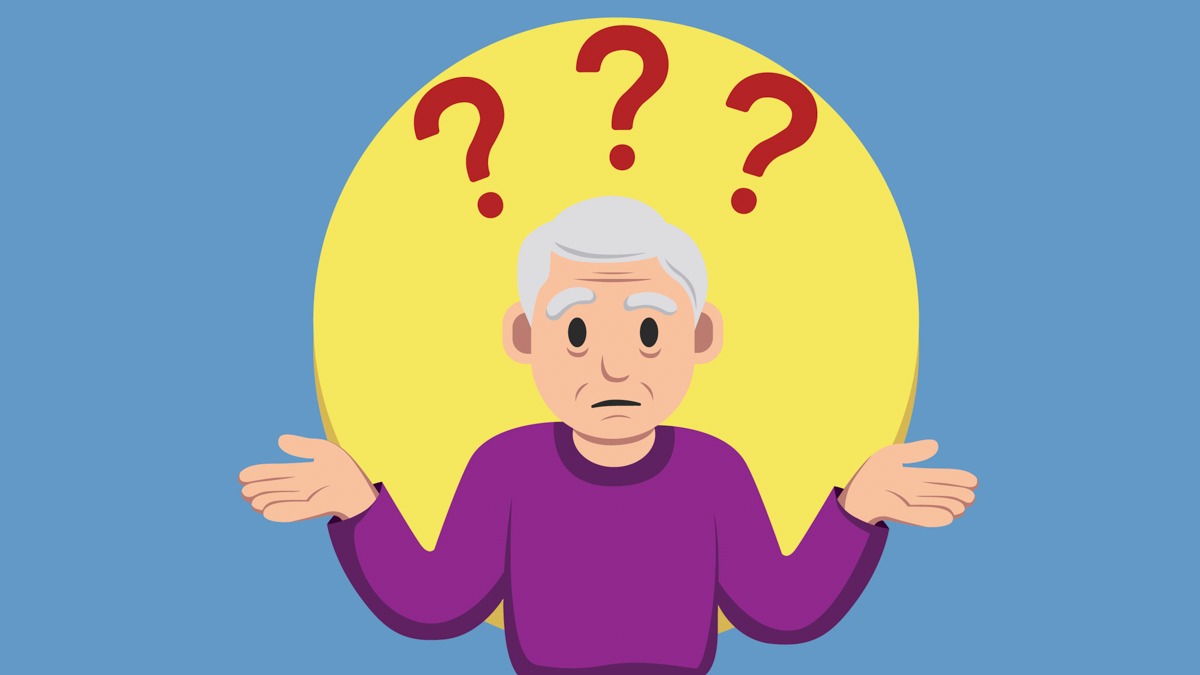
 CBD Oil
CBD Oil